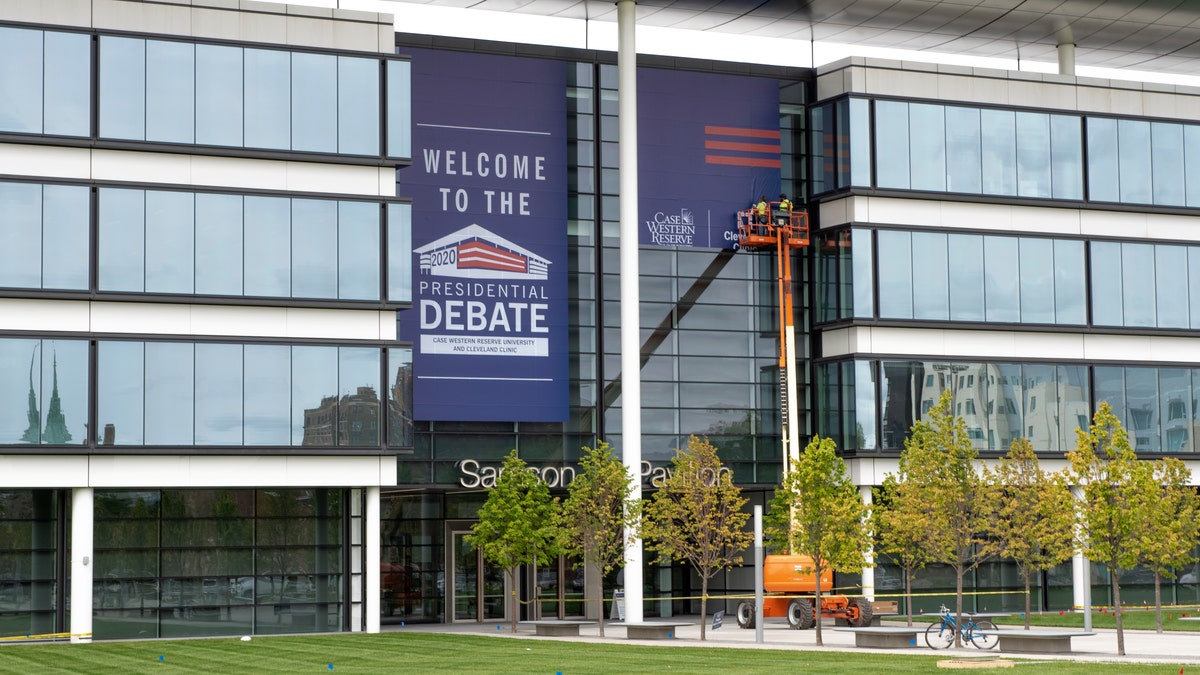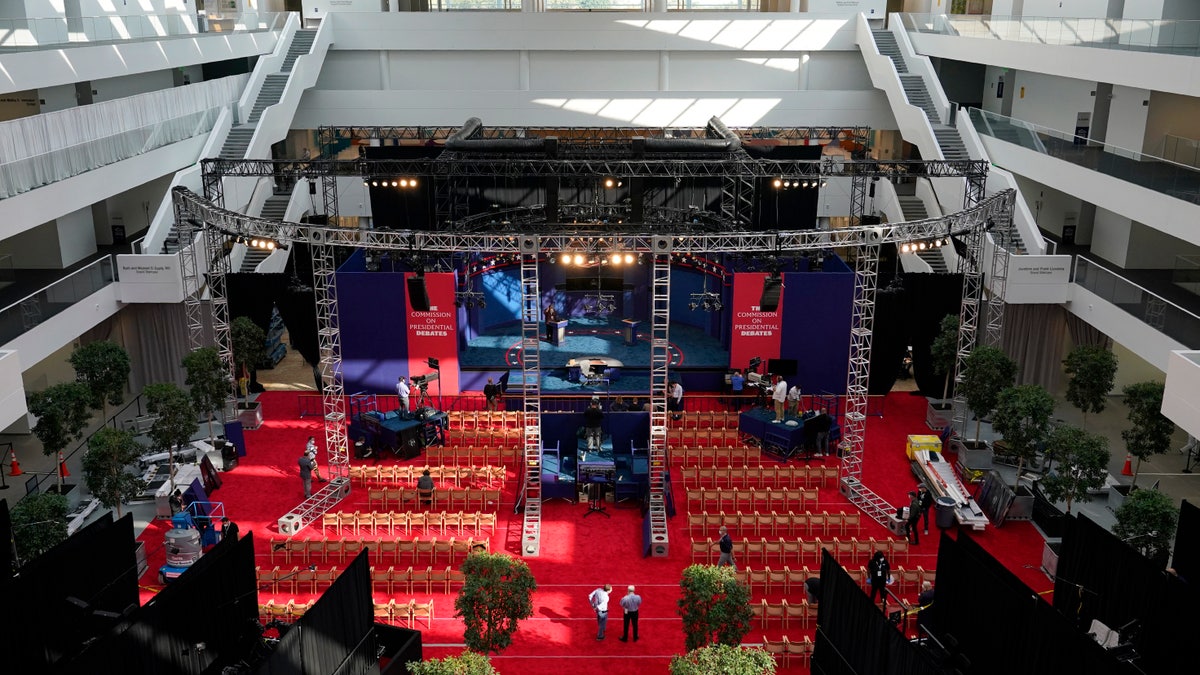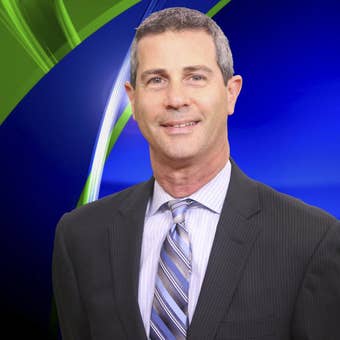CLEVELAND -- The shaking of hands between the candidates and the moderator is a longstanding tradition at presidential debates.
But amid the coronavirus pandemic, that tradition has been thrown out the window due to COVID-19 considerations.
The Commission on Presidential Debates (CPD) says that Tuesday night – when President Trump and Democratic presidential nominee Joe Biden face off at their first of three debates – there will be no handshake between the candidates or the moderator, "Fox News Sunday" anchor Chris Wallace.

The Sheila and Eric Samson Pavilion, site of the first presidential debate, which is being hosted by Case Western Reserve University and Cleveland Clinic, in Cleveland, Ohio
The tradition, which dates back nearly half a century, was broken four years ago when Trump and 2016 Democratic nominee Hillary Clinton didn't shake hands at the start of their second and third presidential debates. The candidates did shake and the end of the second debate but not the third.
The bipartisan commission, which has been organizing and producing presidential debates for over three decades, also announced that once onstage, the two candidates will not be wearing masks.
"Upon entering the stage, President Trump will be standing at a podium on the right side of the stage looking out at the audience, and former Vice President Biden will be standing at a podium to the left side of the stage looking out at the audience," Peter Eyre, a senior CPD adviser, told reporters.
Both Biden and Trump will be standing, with Wallace seated at a desk facing the two candidates.
The debate kicks off at 9 p.m. ET Tuesday and is being hosted by Case Western Reserve University and the Cleveland Clinic, in Cleveland, Ohio.
There will be a small number of ticketed guests inside the debate hall, along with debate officials, crews and TV network anchors, including Fox News. "Everyone in the debate hall will be subject to a variety of health safety protocols, including COVID testing," Eyre highlighted.
There will be no opening statements from the candidates at the debate. There are six topics that will be covered in six 15-minute sections during the 90-minute commercial-free showdown.
The topics for Tuesday’s debate, which were chosen by Wallace and announced last week by the nonpartisan commission, are many of the biggest issues that have rocked the nation this year.
DEBATE EXPECTATIONS: HAS TRUMP LOWERED THE BAR FOR BIDEN?
The issues are the fierce Supreme Court nomination battle, the worst pandemic to strike the globe in a century, a national economy flattened by coronavirus, the racial justice protests and violence that have flared in cities across the nation, and the integrity of the election. The latter is a crucial issue, considering the president for months has railed against expanded voting by mail, repeatedly charging that it would lead to a "rigged election." The sixth topic for the debate will be the records of the current president and the former vice president.
"There will be no opening statements from the candidates and the moderator, Chris Wallace, will pose the first question to President Trump," Eyre said.
Each candidate has two minutes to respond to the question. Candidates will then have an opportunity to respond to each other.
"The moderator will use the balance of the time in the segment for deeper discussion on the issues," Eyre said. "As always, the moderators alone will select the questions to be asked and those questions are not known to the candidates, the campaigns, or the commission. The moderators will have the ability to extend each segment, focusing on equal time for the candidates."

Preparations take place for the first Presidential debate in the Sheila and Eric Samson Pavilion, Monday, Sept. 28, 2020, in Cleveland. The first debate between President Donald Trump and Democratic presidential candidate, former Vice President Joe Biden is scheduled to take place Tuesday, Sept. 29. (AP Photo/Patrick Semansky)
Wallace – who garnered positive reviews for his moderating of the third and final 2016 debate between Trump and then-Democratic presidential nominee Hillary Clinton – said Sunday on Fox News, "My job is to be as invisible as possible. … I’m trying to get them to engage, to focus on the key issues, to give people at home a sense of, ‘why I want to vote for one versus the other.’"
But don’t expect Wallace or the moderators of the other two presidential debates and the single debate between Vice President Mike Pence and Democratic vice presidential nominee Sen. Kamala Harris to fact check the candidates.
"There’s a vast difference between being a moderator in a debate and being a reporter who is interviewing someone," CPD co-chair Frank J. Fahrenkopf Jr. said Sunday on CNN. "We don’t expect Chris or our other moderators to be fact checkers. The minute the TV is off, there are going to be plenty of fact checkers in every newspaper and every television station in the world. That’s not the role, the main role, of our moderators."













































